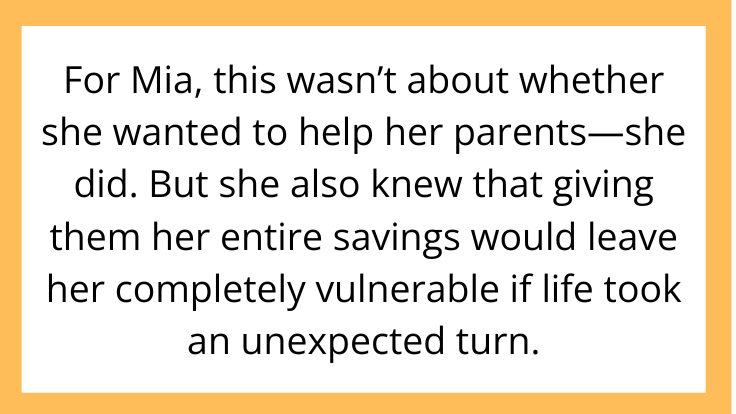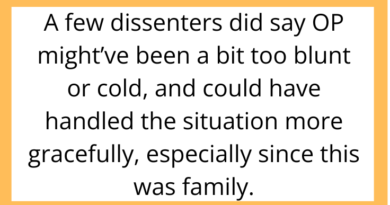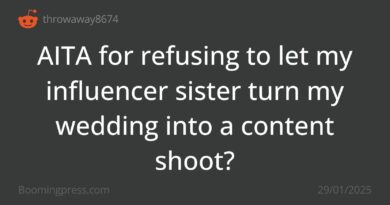AITAH for Refusing to Give My Parents Access to My Emergency Fund When They Needed Help?
When family asks for help, especially in times of crisis, saying no can feel impossible—and sometimes unforgivable. But what happens when protecting your own security means denying the people who raised you? In today’s AITAH scenario, a young professional’s decision to hold onto their emergency savings has sparked a wave of judgment, guilt, and tough questions about responsibility.
Let’s dive into the situation and see whether they were truly out of line.
The Situation: A Request That Felt Like a Demand

The original poster—let’s call her Mia, 28—shared her story on r/AITAH. A year ago, she started an emergency fund after reading about the importance of having at least six months of living expenses saved. She worked extra hours, skipped vacations, and cut down on spending to build up her safety net.
Recently, Mia’s father lost his job, and her parents found themselves struggling to cover their mortgage and other bills. They asked Mia if she could “temporarily” loan them $15,000 to keep afloat. Her mother assured her they would pay it back as soon as possible.
Mia hesitated. She’d worked hard to save that money and worried that if she handed it over, she wouldn’t be able to cover her own rent or expenses if something happened to her job. She gently explained that she could help in smaller ways—like contributing a few hundred dollars monthly—but she wasn’t comfortable draining her entire safety cushion.
Her parents were furious. Her father accused her of being ungrateful and selfish. Her mother said she clearly didn’t care about family.
Mia turned to Reddit, asking: AITAH for refusing to give my parents my emergency fund even though they need help?
Why This Situation Resonates with So Many

Money issues are never just about money. They often tap into deeper feelings of loyalty, love, and guilt.
For Mia, this wasn’t about whether she wanted to help her parents—she did. But she also knew that giving them her entire savings would leave her completely vulnerable if life took an unexpected turn.
Her parents, meanwhile, likely felt frightened and desperate. When you’ve always been the provider, it’s humbling—and sometimes humiliating—to have to ask your child for help.
It’s no wonder everyone felt hurt and betrayed.
Setting Boundaries: Selfish or Smart?

Many Reddit users quickly reassured Mia that she was not in the wrong. In fact, hundreds of comments pointed out that:
-
Emergency funds exist for emergencies—your emergencies.
-
You can love your family without bankrupting yourself.
-
Offering smaller, sustainable help is still supporting them.
-
If you give away your safety net, you could end up needing help yourself.
One commenter put it simply:
“You can’t rescue a drowning person if you’re also about to drown.”
But some users argued the other side. In their view, family comes first—no matter the cost.
One person wrote:
“If my parents needed me, I’d do anything. You only get one family.”
It’s a perspective that highlights how cultural values and upbringing shape our views on financial obligation.
When Helping Hurts Everyone
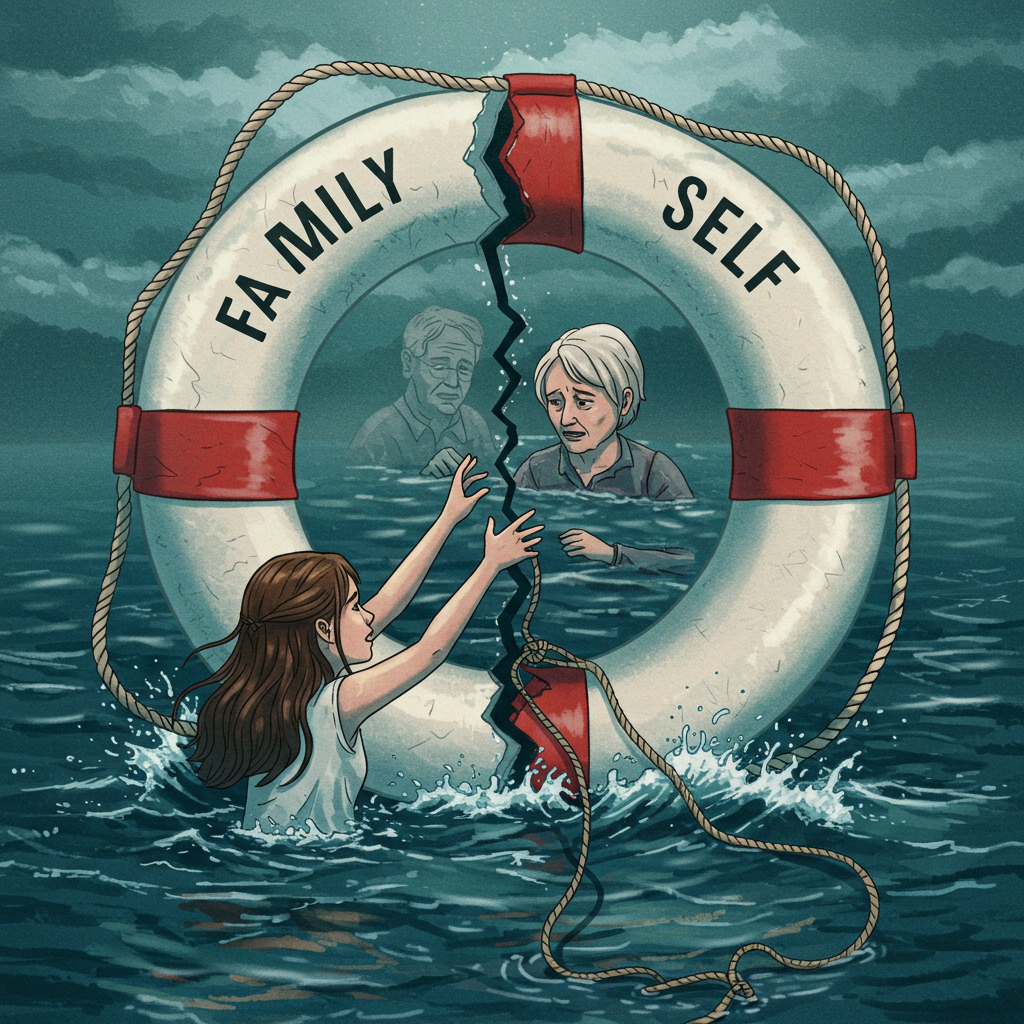
It’s tempting to think giving money will fix everything. But in many situations, a “loan” to struggling loved ones becomes a permanent gift—one that can damage the relationship if it’s not repaid.
Financial experts often caution against draining your own emergency funds for this very reason. If Mia lost her job after giving her savings to her parents, she’d end up relying on them—or someone else—to survive.
Instead, many recommend:
-
Offering partial help within your means.
-
Assisting with budgeting or connecting them to community resources.
-
Considering structured repayment plans (though this can strain family ties).
Mia’s decision to offer what she could afford without endangering herself was a reasonable compromise. Unfortunately, in times of crisis, compromises rarely feel satisfying.
The Deeper Question: Where Does Responsibility End?
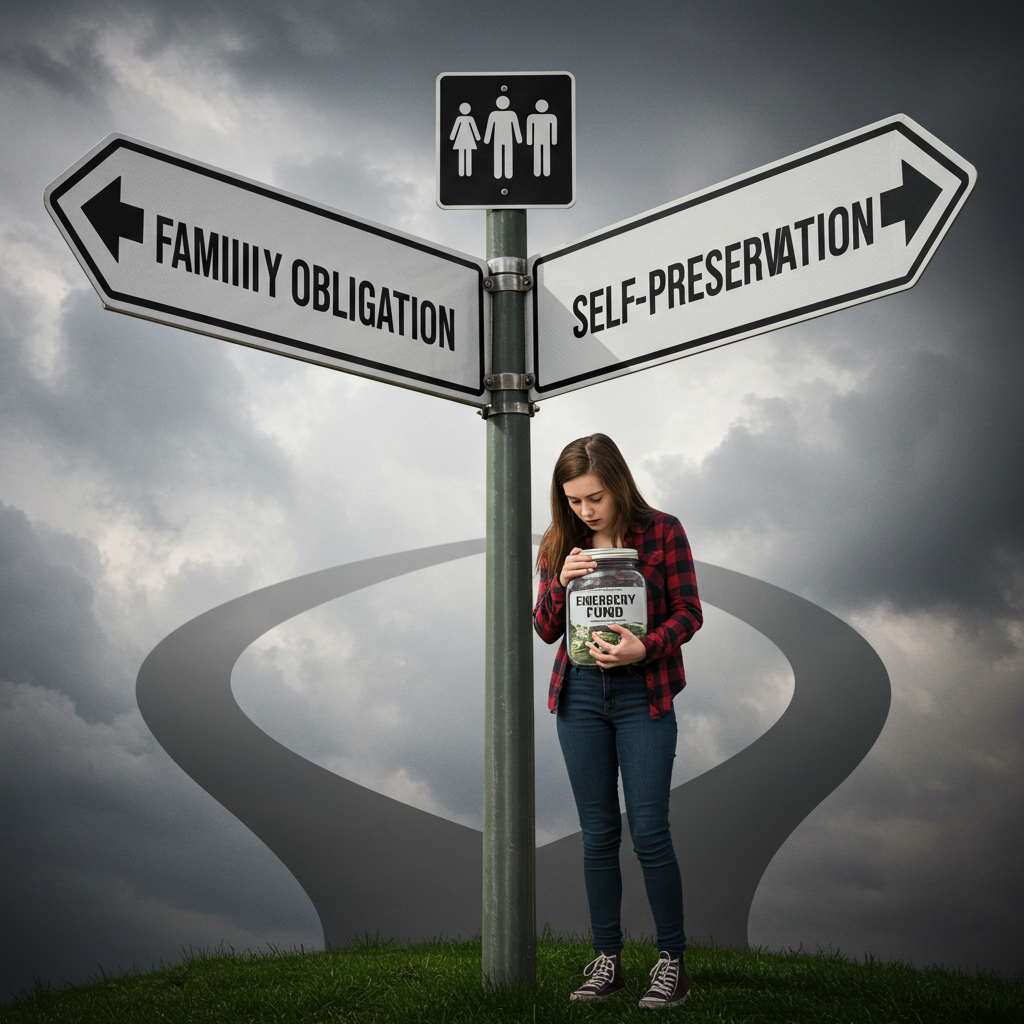
This scenario raises uncomfortable questions:
-
Are adult children obligated to bail out their parents?
-
Is protecting your own security inherently selfish?
-
Does family loyalty mean saying yes—even when you can’t really afford it?
There are no easy answers. Every family has different expectations, and every situation has unique circumstances. But Mia’s story proves that sometimes doing the right thing for yourself means accepting that others might see you as the villain.
Takeaway: You Can Say No and Still Care Deeply

It’s possible to love your parents fiercely and still set healthy financial boundaries. Saying no doesn’t make you heartless—it means you understand your own limits.
Mia wasn’t refusing to help at all; she was refusing to sacrifice her entire safety net. That distinction matters.
